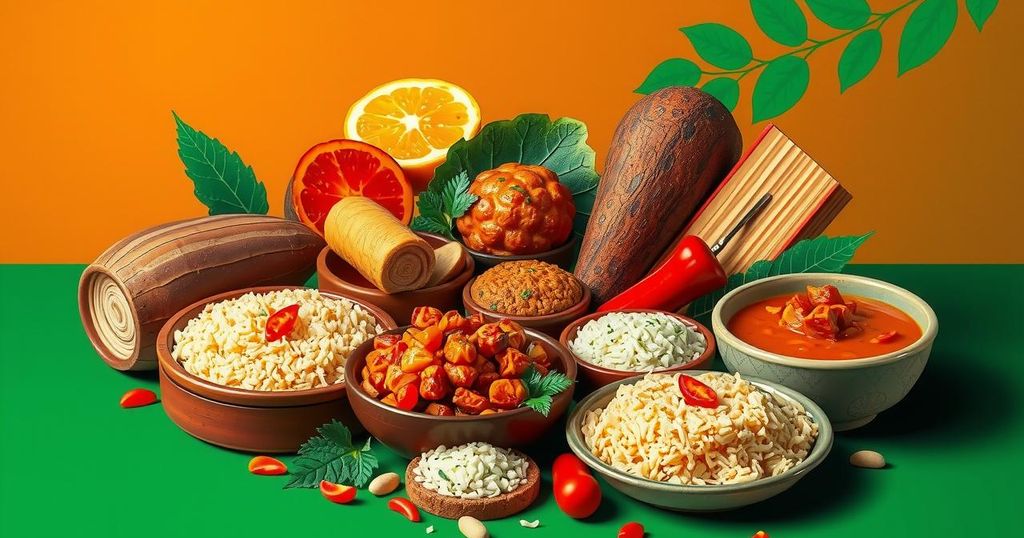Prohibited Nigerian Foods for Travel to the UK

This article outlines the six categories of Nigerian food that are prohibited from entry into the UK. These include all forms of meat, dairy products, unprocessed shellfish, ungutted fish, fresh fruits and vegetables, and raw nuts and seeds. The regulations are enforced to protect public health and prevent the spread of diseases and pests. Travelers are urged to verify these restrictions and consult airline guidelines prior to traveling.
Traveling from Nigeria to the UK presents an exhilarating opportunity, yet it is crucial to recognize the restrictions on certain food items at the border. The UK has implemented strict import regulations to protect public health, preserve local agriculture, and prevent pest and disease invasions. Compliance with these regulations is essential to avoid confiscation of food items, penalties, or delays at customs. Travelers should routinely verify the most current UK import regulations as well as ensure that airlines or travel operators’ specific guidelines on food items are followed.
Here are six Nigerian foods that are banned from entry into the UK, along with the rationale for these prohibitions:
1. Meat and Meat Products: Importing any form of meat—raw, cooked, dried, or processed—is strictly forbidden. This category includes beef, chicken, goat meat, suya, kilishi, sausages, and meat-based dishes such as nkwobi. These prohibitions aim to avert animal disease outbreaks, such as foot and mouth disease.
2. Milk and Dairy Products: Milk, cheese, butter, and yoghurt cannot be brought into the UK. The only permitted exception is powdered infant milk, infant food, or specialized medical food, provided they are in unopened, branded packaging that does not necessitate refrigeration before use. This regulation is in place to prevent the introduction of harmful bacteria and diseases.
3. Unprocessed Shellfish and Snails: Raw mussels, oysters, or live snails are not allowed. If snails are intended for travel, they must be shelled, cooked, and preserved properly. Such restrictions are vital for food safety and the prevention of invasive species spread.
4. Ungutted Fresh Fish: While travelers may carry up to 20 kilograms of fish, it is mandatory that fresh fish be gutted before travel. Processed fish—dried, cooked, cured, or smoked—is permitted if commercially packaged. Other seafood, including lobsters and prawns, is allowed as long as it meets health and safety standards.
5. Fresh Fruits and Vegetables: Most fresh produce is forbidden unless accompanied by a phytosanitary certificate from plant health authorities in Nigeria that confirms their freedom from pests and diseases. This includes fruits such as watermelon and pawpaw, as well as various berries and leafy vegetables (like ugu, bitter, and scent leaves), which require certification as well.
6. Raw Nuts and Seeds: Many unpeeled, unpackaged, and unprocessed nuts and seeds cannot be sent to the UK without a phytosanitary certificate. This includes raw groundnuts, cashews, almonds, and melon seeds (egusi) due to their potential pest and disease transmission.
Travelers must remain informed about these regulations to ensure a smooth experience at UK borders and to evade unforeseen complications at customs.
In conclusion, travelers from Nigeria must be cognizant of the UK’s strict regulations concerning food imports. Prohibitions on meat products, dairy items, unprocessed shellfish, ungutted fish, fresh produce, and raw nuts are pivotal for safeguarding public health and local agriculture. Travelers are advised to stay updated on these restrictions and obtain necessary certifications when permitted items are involved, thereby facilitating a smoother travel experience.
Original Source: businessday.ng







